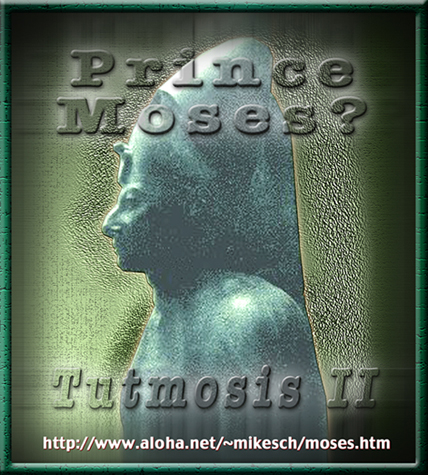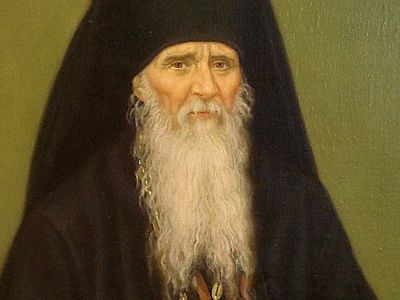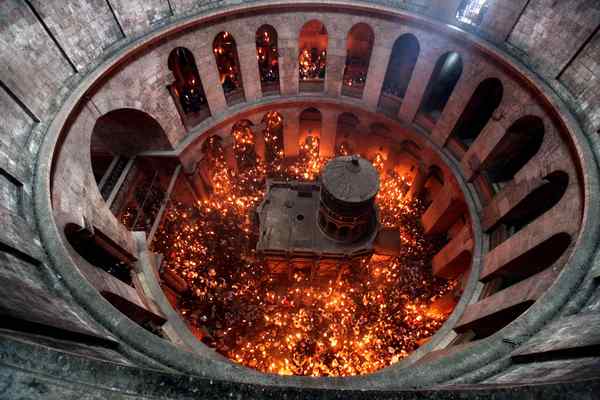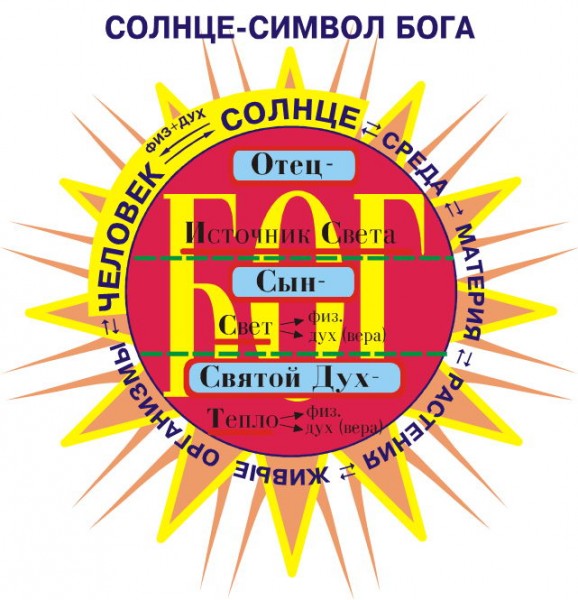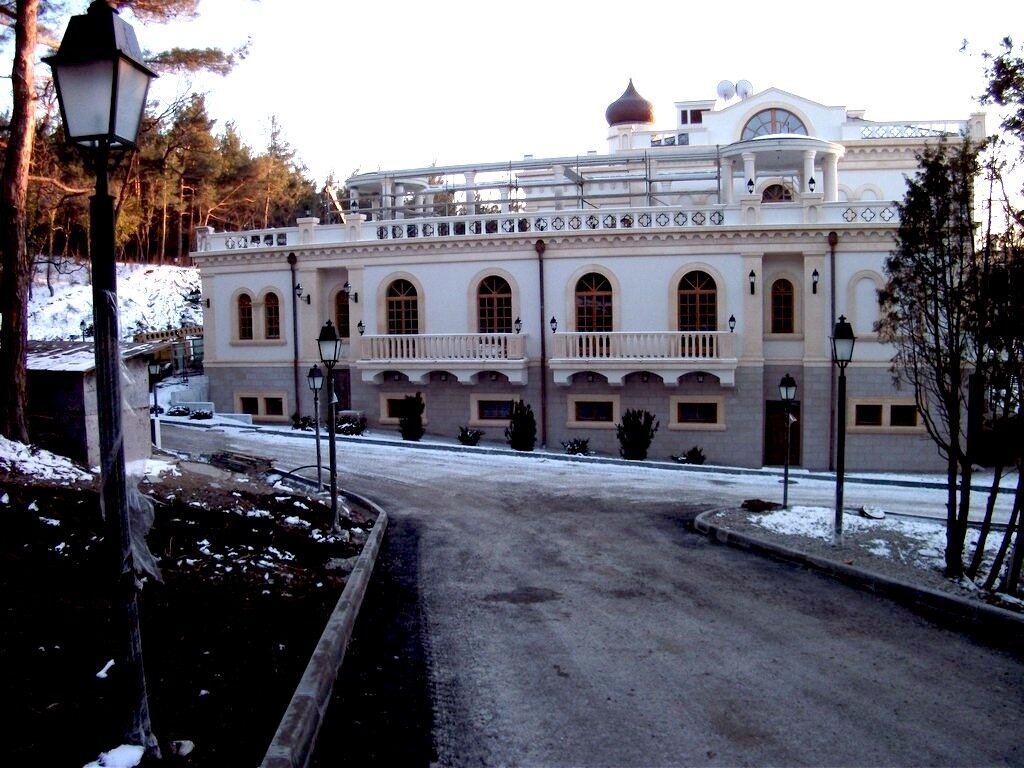What does the god Hermes mean. Myths and Legends * Hermes (Mercury)
Type and attributes of the god Hermes (Mercury). - Hermes is the inventor of Kifara and the god of thieves. - Hermes is the god of commerce, the god of gymnasium and the teacher. - God Hermes is the guardian of roads, travelers and sailors. - Hermes is the god of eloquence, the messenger of the gods and the guide of souls to Hades. - Complaints of the god Hermes (Mercury).
Type and attributes of the god Hermes (Mercury)
God Hermes (in Roman mythology - god Mercury), is, according to the myths of ancient Greece, the embodiment of the exchange, transmission and transition from one state or position to another.
The heavenly ambassador, the god Hermes, conveys the prayers of the people to the gods, and the blessings of the gods to people. As a guide of souls, the god Hermes personifies the transition from life to death. The god of eloquence and covenants, Hermes (Mercury) conveys to others the thoughts of a speaker or messenger.
|
Hermes is the god of gymnasiums (schools of wrestlers), because the struggle consists in the transfer of forces. Hermes is the god of thieves and commerce, because an item stolen or bought, passes from one hand to another.
On the monuments of archaic art in ancient Greece, especially on vases and vessels, the god Hermes is depicted in his prime, with a thick pointed beard, with long curly hair, in a low travel hat, with winged sandals and holding in his hand caduceuswhich sometimes resembles a scepter on statues.
On antique engraved stones of a later era, the god Hermes (Mercury) is sometimes depicted with a beard, but these images are undoubtedly an imitation of ancient monuments, because in the era of the golden age of Greek art the type of god Hermes is completely different.
God Hermes is depicted as a tall, slender youth, always beardless, with short hair cut, thus representing the ideal type of youth attending school wrestlers (gymnasium). Hermes' face does not express the greatness of Zeus (Jupiter) or the pride of Apollo, but Hermes often reflects the cunning inherent in this cunning and dexterous god.
Low winged hat and caduceus - The main attributes of the god Hermes (Mercury). Even when Hermes is portrayed with his head drawn, there are wings on Hermes’s head.
Caduceus the god Hermes, or rod, is a stick that is wrapped around two snakes.
Sometimes Hermes has wings or winged sandals on his heels. God Hermes (Mercury) is often given other attributes, in accordance with his various duties and responsibilities. Hermes acts as a divine shepherd, and then Hermes is portrayed with a ram or goat. As the inventor of kifara, the god Hermes is depicted accompanied by a turtle, from which Hermes made the first kifara. A rooster is attached to the god Hermes as an attribute of the god of gymnasiums (schools of wrestlers). The purse in Hermes’s hand indicates that Hermes is the god of commerce.
This last attribute (wallet) is found most often on ancient monuments of Roman origin, since the ancient Romans god mercury was predominantly god of trade.
Hermes - the inventor of Kifara and the god of thieves
Few of the gods are mentioned as often in ancient mythology as this god. The role of Hermes is very important, although he is considered a secondary god, but in many cases Hermes, like a footman in a comedy, turns out to be the main person leading the course of the case in ancient myths.
God Hermes (Mercury) invented kifaru on the same day as he was born. Having thrown off the diapers, into which his caring mother Maya wrapped him, Hermes ran out of the cave. At the entrance to the cave, the baby Hermes saw a turtle walking slowly and importantly along the soft grass. The newborn god Hermes grabbed the turtle, pulled the animal out of its dwelling (shell), pulled lamb strings and covered the solid turtle skeleton with bull skin.
So the first kifar in the world appeared. Having finished his work, Hermes struck the cipher strings and was delighted with the sounds made by his new instrument. Delighted with his invention, the god Hermes immediately improvises several harmonic verses, which he immediately sings in honor of his invention.
God Hermes (Mercury) from a very early age shows qualities that later brought him the honorary title of god of thieves. On the first day of his birth, Hermes steals the trident of God (Neptune), the arrows of the god Eros (Cupid), the sword of the god (Mars), the belt of the goddess (Venus). Desiring to adequately end such a successfully begun day, the god Hermes goes to Pieria and steals there a herd of bulls belonging to.
Taking all sorts of precautions to confuse and hide the tracks, the baby Hermes leads the flock of Apollo to Pylos, sacrifices two cows to the Olympic gods, and hides the rest in a cave.
Returning to the cave on Mount Killen, the god Hermes lays down as if nothing had happened in his cradle and is wrapped in swaddling clothes. Maya’s mother, who noticed Hermes’s absence, asks where he disappeared and what he did, and threatens Hermes that Latona’s son (Apollon) will be able to find him and expose his tricks, but Hermes boldly replies: “Mother, do not try to scare me, as if I’m weak a child who did some kind of prank and cowards even the voices of his mother. I want and will continue to be engaged in such art that will glorify both you and me ”(Homeric hymn“ To Hermes ”).
Meanwhile, the god Apollo, possessing the omniscience of the prophet, immediately recognizes who stole his cows. Apollo goes to the cave to Hermes. At the sight of an angry god, Hermes even more carefully wraps himself in his diaper and, at first, boldly denies the theft by cunningly adding: “I still do not have the strength of a man capable of leading a whole herd. Moreover, this is not my craft, I have other responsibilities, I still need breast milk and her worries about my diapers. And look, don’t tell anyone about our current quarrel, think about how distrustful and doubtful the immortals would have reacted to your words, if you thought about telling them that a child, just born, went to your home and led away your flock ”(Homer hymn “To Hermes”).
But the god Apollo was not easy to navigate. Apollo took the little god Hermes and carried him to Zeus, asking him to return to him the cows stolen by his son. Hermes here wants to deny his crime, but Zeus, who knows and sees everything, orders Hermes to return the cows to their owner.
God Hermes obeys and leads Apollo to the cave where the cows are. While Apollo is busy recounting the herd, Hermes begins to play kifar. Apollo is so delighted with his playing and instrument that he wants to buy kifaru. Hermes, as the future god of trade, realizing that he can conclude a profitable deal, agrees to give up to kiphar, but demands cows for it. Apollo agrees. While Apollo is just adapting to play it, the god Hermes is already inventing another musical instrument - the shepherd’s horn - and in exchange for it receives a caduceus from Apollo.
Hermes - god of trade, god of gymnasium and teacher
The insolence and arrogance with which the god Hermes lied on his first birthday, and the talent that Hermes discovered in defending such a bad and wrong thing, forced him to recognize and honor the god Hermes (Mercury) as the patron and patron of all lawyers.
God Hermes (Mercury) from the very first days discovered such abilities in the exchange and sale that all began to venerate him as the god of trade.
Antique art then depicts the god Mercury with a purse in his hands. The same purse emblem is given to him when Hermes personifies the god of thieves, but in the first case Hermes is portrayed as a slender, handsome man, as if pondering and weighing his actions, and in the second case, Hermes is given the appearance of a child, smiling slyly and cunningly, as if remembering his adventures.
Hermes is the god of the school of wrestlers and the patron of all gymnastic exercises in palestras. Then the god Hermes is portrayed as a stately, strong epheb, with short hair and with a rooster and palm tree - emblems of struggle, strength and endurance.
Rooster fighting was one of the favorite shows of the ancient Greeks, who chose this bird as a symbol of struggle.
In all the ancient Greek gymnasiums, one could find an image of Hermes, most often in the form of the head of this god, placed on a pedestal. This image of Hermes is called herma. And the god Hermes himself chuckles at such images - hermes. “My name,” he says, “is the swift Hermes. So do not put me in palestras devoid of legs and arms. "Standing on a podium without arms and legs, how can I be a quick-footed and agile fighter ?!”
Since the letters serve to transfer the thoughts and ideas of people among themselves, Hermes (Mercury), as the god of exchange and transmission, is the inventor of the alphabet and teaches people the art of transmitting their ideas and thoughts through writing.
Teachers, public scribes, and all writers all turn to God Hermes with requests and prayers. All the tools that are used in writing, as well as for geometry, are dedicated to the god Hermes. In addition, according to the myths of ancient Greece, the god Hermes invented numbers, measures and scales.
God Hermes (Mercury) is in constant communication with the human race. Hermes loves to take part in people's lives, their hardships and prosperity. Hermes personifies the productive power of nature and is a mediator between nature and humanity. Hermes takes care of the fertility of the fields and, like a shepherd god, protects herds. In Arcadia, a shepherd's country for the most part, the Hermes cult was very common.
God Hermes - guardian of roads, travelers and sailors
Hermes (Mercury), as the god of commerce, is the natural patron of travelers and sailors, the guardian of roads and waterways.
In the era of Greek archaic, stones were piled at the crossroads. Heaps of stones at the crossroads depicted the altars of the god Hermes, and each passerby had to add his own stone to this primitive monument.
Subsequently, altars of a different form began to be erected to God Hermes.
Hermes - the god of eloquence, the messenger of the gods and the guide of souls in Hades
On the monuments of ancient art depicting Hermes (Mercury) as the god of eloquence, he was given a special gesture: Hermes raised his right hand, as if he wanted to clarify something. The art of conveying thoughts through speeches is one of the many qualities of the god Hermes (Mercury), and his duties included teaching people this art. They turned to the god Hermes when they wanted to ask him for the gift of memory and the ability to speak.
One Orphic hymn speaks of the many responsibilities of this god: “Beloved son of Maya and Jupiter, the god of travelers, the messenger of the immortals, the owner of a vast heart, the strict censor of humanity, the witty god who takes a thousand species, the killer of Argus, the god with winged legs, the friend of mankind, patron of eloquence, you who love cunning and struggle, a translator from all languages, a friend of the world, a happy god and a useful god, a patron of labor and an assistant in human disasters, listen to my prayers, give me a happy ending to my being “good luck in my works, a mind endowed with memory, and the gift of eloquence.”
One of the main and most important duties of Hermes (Mercury) is to serve as the messenger of the gods and mediator between them and humanity. God Hermes (Mercury) is mainly the ambassador of Zeus (Jupiter), the executor of all his commands. The god Hermes has a winged hat and winged sandals, as if in order to faster fulfill the instructions of the gods.
Caduceus, the permanent affiliation of Hermes-Mercury, has a different meaning. Originally, Hermes' caduceus simply personified the rod of heralds. Subsequently, the caduceus of Hermes began to give miraculous power. For example, Hermes euthanizes the vigilant Argus with the help of the caduceus, wanting to save the unfortunate Io from him.
The beautiful bronze statue of Giovanni da Bologna in Florence "Mercury, set off to fulfill the command of Jupiter" has been preserved.
God Hermes had a special duty to escort the souls of the dead to the kingdom (Pluto). In this function of the psychologist God Hermes is called Psychopomp - "guide of souls" in translation from the ancient Greek language. On many monuments of ancient art, Hermes (Mercury) is depicted performing this duty, and on one ancient fresco, the god Hermes is represented by two souls presenting to God Pluto, in the presence of Persephone.
Complaints of the god Hermes (Mercury)
Of all the gods of Olympus, Hermes is the most indefatigable figure. So many varied labors and duties fell on the share of the god Hermes that, for all his hard work, he could not resist, at least occasionally, from complaints.
According to the ancient Greek writer Lucian, Hermes says: “There is no god more unhappy than me: I have one so much work and so many varied responsibilities! In the morning I must sweep out the hall where the gods feast; Having put everything in order there, I go to Zeus to listen to his orders and instructions, and then, carrying them out, I am scampering like a walker between Olympus and the earth. ”

ZAUMNIK.RU, Egor A. Polikarpov - scientific editing, scientific proofreading, design, selection of illustrations, additions, explanations, translations from Latin and Ancient Greek; All rights reserved.
It is considered the messenger of the gods. He is called the patron saint of travelers and the guide of souls of the dead. Hermes' father is Zeus, and his mother is the beautiful nymph of the Mayan mountains. Hermes is usually depicted in the form of a young man who is wearing a hat (the edges are bent at the top), in gold wings) and with gold is magic, this is a gift from Apollo, it is decorated with two snakes).
It is believed that the divine will is most often expressed in a dream, so Hermes with the help of his magic wand sent to people.
God Hermes is a mediator between the world of the dead and the world of the living. He possesses resourcefulness and dexterity, and also has the gift to open any bonds unnoticed. These qualities allow Hermes to be the patron of thieves and rogues, because it was not without reason that the cunning Moses was his grandson.
In addition, it is believed that Hermes invented a very interesting musical instrument - the lyre. He was a prankster, a merry fellow who loved practical jokes. It was he who, for fun, stole the scepter from Zeus, the golden arrows with a bow from Apollo and the trident from Poseidon. It is worth noting that he used them only when it came to something noble. Hermes will surpass anyone in cunning, cunning and ingenuity, not for nothing that thieves and cheaters consider him his patron.
As for the people, they appreciated Hermes for giving them the measures of weight and length that were invented by the centaur Chiron. He gave them numbers and alphabet, and also taught literacy. Hermes was revered as the patron saint of young athletes.
In honor of him, they even built stadiums that were intended for various competitions of athletes, as well as schools in which they were engaged in gymnastics. These schools were decorated with sculptures of Hermes.

An interesting myth is that, thanks to Hermes, the love of Io and Zeus took place. Io was the lover of Zeus. The fact is that Zeus was very afraid of Hera’s wrath, so he turned Io into a white heifer, but Hera unraveled his cunning plan and asked for this heifer as a gift. She assigned Io the guard of giant Argos to Io, his body was covered with eyes, and at the same time only two eyes were sleeping, respectively, he watched constantly. So the god Hermes was able to outwit Argos and kill him, thereby freeing Io. A liberated woman wandered through Egypt, Asia, and Greece; she was pursued by the gadfly sent by Hera. It was only in Egypt that Io was able to regain her appearance, gave birth to a son, Epaphus, who later became the ancestor of many heroes such as Amphitron, Perseus, Heracles, and others. When Io wandered and came to the Caucasus, she met Prometheus there, who predicted the great future that awaits the descendants of Io and Zeus.
Hermes - the god of what? In the days of the so-called classical mythology, its role is understood differently. He is already becoming the patron of heroes, not thieves. Hermes gives Perseus a sword, with the help of which he kills Hermes reveals to Odysseus the secret of magic grass, with her help he was saved from Kirk's spell. He guards during the wanderings of heroes.
God Hermes was honored and at the festival in memory of the dead and the awakening of spring, this holiday was called Anfesteria. In gratitude, Zeus gave him a constellation called Lyra. Hermes is a god to whom in Roman mythology corresponds who is also of various crafts.
Hermes is the god of trade, profit, rationality, agility, cheating, deceit, theft and eloquence, giving wealth and income in trade, the god of athletes. Patron of heralds, ambassadors, shepherds and travelers; patron of magic and astrology. The messenger of the gods and the guide of the souls of the dead to the underworld of Hades. Invented measures, numbers, alphabet and trained people.
The son of Zeus and the Mayan pleiades (according to the version, the son of Persephone), Hermes was born in the grotto of Mount Killena. According to another version, he was born on Mount Kerikion (Boeotia). The first theft he committed while still in swaddling clothes; having left his cradle, he stole fifty cows, whom Apollo grazed. So that they would not be found in the footsteps, he tied branches to their feet (option - adapted sandals) and hid in a cave. Meanwhile, he made a lyre on Mount Helidorea (Arcadia) from the shell of a large turtle and from the small intestines of two killed cows, there were 7 strings on the lyre. As a baby, Hermes jokingly stole the scepter from Zeus, the trident from Poseidon, the tongs from Hephaestus, the belt from Aphrodite, the golden arrows and bow from Apollo and the sword from Ares.
Hermes invented writing in Egypt. He invented the first 7 letters, looking at the flight of cranes, he also taught mortals occupations in the palette. He established the order of the constellations and placed in heaven the letter delta (the first in the name of Diy) - the Delta-shaped constellation.

In honor of Hermes, Hermas were installed on the roads - statues that also served as road signs. Herma was a stone column with the head of Hermes carved. Hermas were installed at crossroads. In 415 BC the hermes were destroyed, presumably by order of Alcibiades. This inexplicable act of sacrilege served as a bad omen for the unsuccessful campaign of the Athenian fleet in Sicily. At the time of Rome, the hermes lost contact with the cult of Hermes and began to be made in the form of a rectangular column on which a bust of a person or deity was erected.
Hermes often fulfills the orders of Zeus. So, on his behalf, Hermes stole a cow from Hera, which turned into the beloved of Zeus Io. Hermes is known for selling Hercules into slavery to Queen Omfale.
One of Hermes's nicknames was Psychopomp (Greek: The Theosophist), because he accompanied the souls of the dead to Hades. In later times, Hermes began to be called Trismegistus ("three times the greatest") due to the fact that he is included both in this world and in the other world. 
Hermes, who received it from Apollo, had the traditional winged baton of the messenger kerikion or caduceus, capable of reconciling enemies. The caduceus had two snakes on it (in another version, two ribbons), which encircled the staff at the moment when Hermes decided to test it by placing it between two fighting snakes. Hermes used his rod to lull or wake people - in order to transmit a message from the gods to one of the mortals, and most often this is done in a dream. Hermes' other attributes are a wide-brimmed hat petasand winged sandals talaria. As the patron saint of herds, Hermes was portrayed with a lamb on his shoulders.

When the gods fled to Egypt, he turned into an ibis. His name is the only gate of Thebes and the planet. Steelbon- the name of the star of Hermes (planet Mercury). For Hermes was the first to introduce the months and examine the course of the heavenly bodies. According to Egimer, the luminaries Aphrodite located and taught Hermes.
Hermes is dedicated to III and XVIII hymns of Homer, XXVIII Orphic hymn. He is the protagonist of the tragedies of Aeschylus “Eumenes” and “Chained Prometheus”, the tragedies of Euripides “Antiope” and “Ion”, the comedies of Aristophanes “The World” and “Plutos”, the plays of Astidamant the Younger “Hermes”. There are numerous antique statues of Hermes - “Tie a sandal”, “Hermes Belvedere”, “Hermes Olympic” and others.

Hermes is the god of trade, agility, cheating, deceit, theft and eloquence of Ancient Greece, giving wealth in trade. Hermes is also the patron saint of heralds, ambassadors, shepherds, travelers; patron of magic, alchemy and astrology, and also - the messenger of the gods and the guide of the souls of the dead (hence the nickname Psychopomp - guide of the souls) to the underground kingdom of Hades. Hermes is the son of Zeus and the beautiful nymph of the Mayan mountains, the grandfather of the brave and wise Odysseus. Hermes is usually portrayed as a young man in a hat with curved brim, in gold winged sandals and with a golden katsubey magic wand, a gift from Apollo decorated with two snakes.
In ancient Roman mythology, Hermes corresponds to Mercury, the patron god of trade, profit and enrichment, the son of the sky god Jupiter.
Immediately after birth, Hermes discovered all the main features of his character: ingenuity, agility combined with grace, cunning and craftiness. Developing unusually fast, at the fifth hour after birth he leaves the cradle, makes a lyre, pulling the strings on the shell of a turtle, and sings the love of Zeus and his mother Maya on it.
Feeling the urge to eat meat, Hermes at dusk hurries to Pieria and steals 50 bulls from the herd of Apollo. Having tied sandals or tree branches to the feet of the bulls to confuse the tracks, he drives them in front of him, hides them in a cave near the city of Pylos, and then returns to his mother and lies in the cradle, as if nothing had happened.
But Apollo, possessing the gift of providence, opens the thief and leads him to Zeus. According to the verdict of Zeus, Apollo receives his bulls back and voluntarily gives them to Hermes in exchange for the lyre he invented. Then Hermes invents a modest shepherd’s pipe (syringa) for himself, but even he gives in to Apollon for the “crier of the herald”. Thus, Hermes became the god of herds and pastures, while Apollo from that time began to zealously engage in music. In addition, Apollo taught his younger brother the art of divination, and Zeus made him a herald of the gods.
Since that time, Hermes appears in myths about gods and heroes, most often a messenger of Zeus, but often also as a cunning friend of people and heroes, always ready to give reasonable advice. He is most willing to spend his time in the society of forest and field nymphs. So, Priapus, Hermaphrodite, Daphnis in Sicily and many others were considered his sons. Initially, Hermes was “swift, hurrying”, he was the god of the wind, as a result of which he was imagined as winged, then he became the god of travel and travel, and finally the god of trade and all kinds of affairs in general; as the god of travels, he accompanies people in their last pilgrimage to the kingdom of Hades, so he is called the "guide of souls."
The most ancient form of veneration of Hermes was the worship of him in the form of a simple pile of stones. A pillar was strengthened in such a heap, and when the phallus began to be depicted on the pillar, and later also attached the head of a god to the pillar, it turned out to be herms, which at the same time served initially as travel pillars and were equipped with wise sayings.
Mythical philosophers called Hermes a "general translator" who gave people languages \u200b\u200band writing, and at the same time the opportunity to express their thoughts; the Greeks symbolically indicated this by sacrificing the tongues of sacrificial animals to him. Palestra and gymnasiums were also considered his invention and were dedicated to him.
A special holiday in honor of Hermes was called "Hermei" and was celebrated mainly in Athens in gymnasiums and palestras. Hermes, a deity so versatile in nature, was considered here mainly as a god of gymnastic dexterity. In a completely different meaning (as a preventer of epidemics) he was revered in Tanagra (Boeotia); his cult on the island of Crete, where he approached the cult of Saturn in the Roman Saturnalia, had another significance. The focus of the Hermes cult was Arcadia, and here (especially in Fenea) Hermes was highly regarded as the god of the country's oldest rural population. As the god of commerce, Hermes was identified with Roman Mercury.
The artistic images of Hermes were as diverse as his meanings: he is either a shepherd, then a thief, then a merchant (with a wallet), sometimes with a lyre, sometimes a messenger of the gods or a herald. Hermes, carrying a ram, converted to Christian symbolism as an image of the Good Shepherd. The most ancient art represented him as a bearded man, that is, a strong husband, but already in the early epoch the image of Hermes in his youth was widespread. He wears short curly hair and has an inquisitive and intelligent facial expression.
Hermes is the ancient Greek god of commerce, profit and dexterity, the messenger of the gods and the guide of the souls of the dead.
The myth of Hermes
At the same time, Hermes invented a musical instrument - a lyre, which he loved to play.
Apollo really liked the musical instrument, and he offered to exchange it for cows. Hermes agreed, now he was herding cows and playing them another musical instrument - the flute. Apollo liked him too, God again offered an exchange and now Hermes had a baton. This rod became a symbol of God; it was often portrayed with it. It was a winged rod, with two snakes entwining around it - a caduceus.
According to myths, with the help of this rod Hermes sent prophetic dreams to people that showed them divine will.
For the sake of fun, Hermes also stole a scepter from Zeus, and Poseidon his trident, Hephaestus's instruments, Aphrodite's belt and Ares's sword.
Hermes escorted the souls of the dead to the kingdom of Hades, bringing them to the River Styx, where Charon's boat was waiting for them.
Hermes invented writing, numbers, measures of weight and are long, for which people revered him.
God also patronized the athletes. In honor of him, stadiums and gymnastics schools were built, which decorated him with sculptures.
Hermes was always depicted as a young man, in a hat with curled edges (sometimes with wings), in winged sandals, a golden rod and a lamb on his shoulders.
